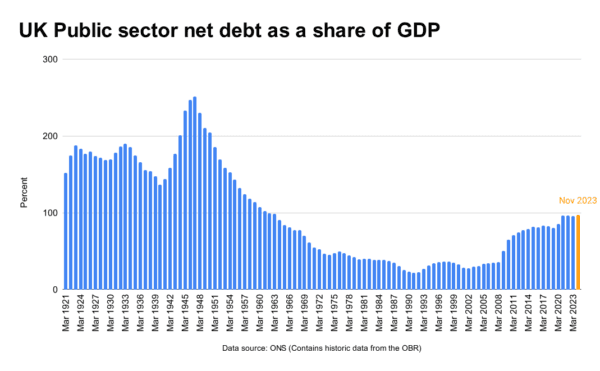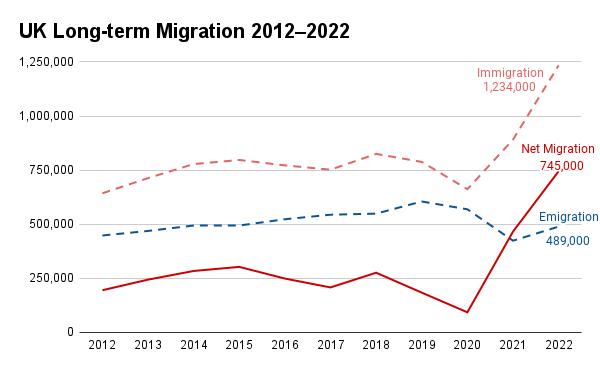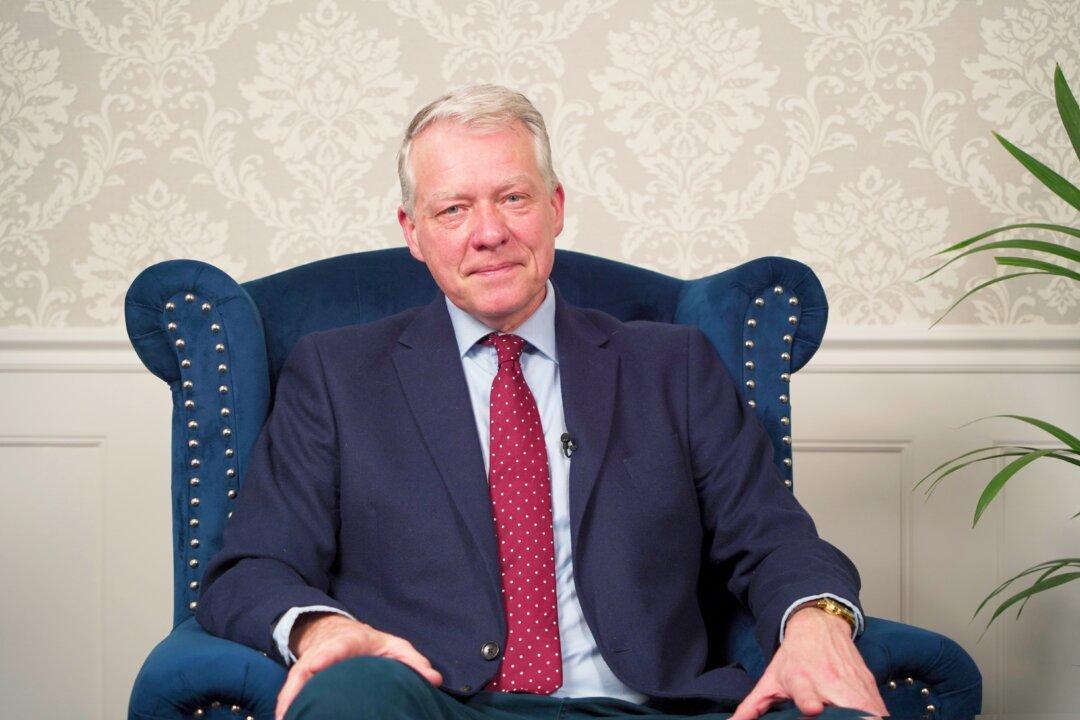The UK is addicted to immigration and debt, says William Clouston, leader of the Social Democratic Party (SDP).
Speaking to NTD’s “British Thought Leaders” programme, Mr. Clouston said the country needs to pause mass immigration for 30 years to “try and find a new us.”
He also said SDP would like to re-nationalised railways, build houses, and support families.
Predicting a “substantial” Labour victory in the upcoming general election, the SDP leader said the likely new government would “probably [be] the worst combination you can have, which is a combination of neoliberal Blairite economics”and “runaway liberalism socially.”
He also criticised the successive Conservative governments for doing “the opposite of what is conservative” on issues such as immigration and housing, and blasted liberal politicians for treating the UK “as a shop and not a home.”
The SDP was founded in 1981 by four moderate Labour MPs who were dubbed the “Gang of Four.”
Mr. Clouston said he and his colleagues started reviving the party, which “went back to the hinterlands a bit,” in recently years because there is now “a huge gap in the landscape of British politics” that they believe they can fill.
He described the party as being “a little bit to the left on economics, but not aggressively so,” and married with “a cultural, traditional attitude—faith, flag and family, [as] some people call it—respect for tradition, respect for our past, a Patriotic Party.”
And “family is the key of it,” Mr. Clouston added, saying he believes “the disintegration of a family life throughout the West” is “the prime cause of social ills today.”
“Family stability matters massively not just for the family concerned—the children and the parents—but the wider community and the whole of society,” he said.
“And on every single metric, family instability predicts worse outcomes for children in terms of health, education, mental illness, employment, sustainability, and criminality. And I’m afraid unless you’re willing to be honest about it, about the importance of a strong traditional model in married life and things, then I’m afraid you’re not really contributing,” he added.
Speaking of the dark side of globalisation, Mr. Clouston said the introduction of China to the World Trade Organisation in 2001 has been “a massive plus” for the communist-ruled country, but for the West, skilled industrial workers and towns that depended on manufacturing “paid a massive price.”
Liberal Western governments have “been too indifferent to what is made, where, and by whom, even if it’s slave labour,” he said, “And as a result, ... we’ve gutted the factories, close the factories, we then have all the deaths of despair and social problems associated with that.”
People used to be able to run a family of four “on 40 hours of industrial work,” he said, “You couldn’t do that now. And precarious jobs and call centres and Deliveroo isn’t an adequate substitution for a proper industrial job.
“And so a lot of things start to get worse and the West starts to hollow out its industry, it starts to accumulate debt,” he said.

Speaking of “rootedness and obligation and duty,” Mr. Clouston also criticised industrialists and corporations that offshore manufacturing, saying, “These multinationals have very little attachment or obligation to the countries they’re in.”
Mass Immigration Pause
“Debt is one of our addictions. The other one is immigration. Mass immigration has become an addiction to this country because we can’t be bothered to train our own people,” he claimed, advocating for a 30-year pause in mass immigration for both economic and cultural reasons.Mr. Clouston said he believes the NHS has enough budget to train “all of the clinicians, doctors, nurses, and ancillary staff” that it needs, but doesn’t do so because “it’s easier simply just to click your fingers and import staff.”
He also said it’s “disingenuous” to ignore the impact of immigration on housing.
“If you care about housing, to say we can build 200,000 houses and let 1.4 million people come in and it doesn’t matter where are people gonna live. It’s dishonest, and it’s also innumerate.”
In 2022, migration added 745,000 more people to the UK’s population, according to the Office for National Statistics.

Mr. Clouston said you can’t increase house-building capacity overnight.
“I feel sad when I speak to young people. If you’re 20, if you’re 25, or 30, I’m afraid the housing crisis isn’t going to be solved in ... your window opportunity to start a family,” he said.
Advocates of a free market economy would often support immigration as an increased population is associated with higher national and per capita GDP, but Mr. Clouston said there’s also a cultural argument for reducing immigration.
“... if you import massive numbers of people from different parts of the world, you change the complexion and nature of your own society; you change its culture,” he said. “And there’s an absorption rate for immigration.”
If immigration keeps increasing faster than the speed the UK can absorb the new arrivals, “your society will just become more divided and more atomized and balkanized,” he said.
“So we’re calling for a mass immigration pause, not for five years, for 30 years. I think you have to have a good look at the whole society, try and find a new us. In other words, if we don’t do that, I’m not sure what sort of society we will be actually in by the 2050s [or] 60s,” he said.
The SDP leader criticised former Prime Minister Liz Truss, saying she’s one of the people who take the approach of “viewing the country as a shop and not a home.”
Re-nationalise Railways
The SDP runs on the platform of social market economy, pledging to re-nationalise “natural monopolies such as railways, gas transportation, and electricity distribution” and establish a state-run bank that it says would “give all UK citizens and businesses a right to basic bank account” and lend to large UK infrastructure projects and start-up businesses in key strategic sectors.Making a case for re-nationalise railways, he argued that the privatisation of Britain’s railways was a “phoney privatisation.”
“Remember that the state does the heavy lifting now, so the track and the signalling and all the heavy lifting in terms of basic infrastructure is still state run and state funded and controlled. And that requires several billions to do that,” he said.
“What they’ve done is, have a sort of phoney privatisation, offering franchises on just particular tracks with different coloured trains. And it’s not worked for lots of reasons.”
He said a monopoly is better in terms of integration, and argued that the state would take over anyway now that the franchisees can’t make money.
“The biggest problem, I returned to this, is that no self-respecting state would do this. And if you look at the franchise companies that run our railways, it’s the Dutch national railways. It’s the German national railways, the French national railways and the Italian national railways,” he said, calling for a British national railways system “which is an emblem of British engineering, management and pride, livered up with British rail clarity.”








